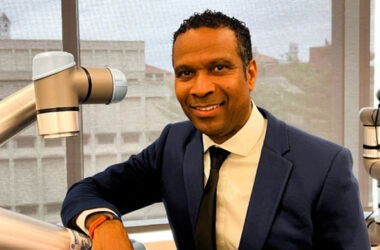Let’s take a journey back in time to Jerusalem during the Spring of AD 30. It’s the week of the crucifixion of our Messiah and the four gospels highlight different details about the event. Matthew 26:50 highlights Jesus’ response to Judas before receiving the kiss of betrayal “Friend, why have you come?” His question relays love for Judas down to the very last moment. The term ‘friend’ communicates care, vulnerability and acceptance. ‘Why have you come?’ was not asked because Jesus needed an answer but in order to invite Judas to examine himself before it was too late. Mark 14:51 leaves us inquiring ‘who was the young man who ran away naked after following Jesus?’ and what can we learn from him in order to avoid fleeing in the opposite direction when our faith is challenged? John 19:30 states that the final declaration from the Rabbi whose words had been proven to come to pass was “it is finished”. We may wonder to ourselves, ‘what exactly did He finished?’ And Luke 23:34 shares a piece of this puzzle that we will focus our attention on; when Jesus, suspended from a wooden cross by nails that were driven into His body prayed: “Father forgive them for they do not know what they do.”
How do you ask God to forgive the people who are causing you harm; not accidently but with the intention of destroying your reputation, your peace of mind and your life? Jesus, such a wonderful Saviour, not only preached of the kingdom of righteousness but demonstrated it. “But I say to you, love [that is, unselfishly seek the best or higher good for] your enemies and pray for those who persecute you, so that you may [show yourselves to] be the children of your Father who is in heaven; for He makes His sun rise on those who are evil and on those who are good, and makes the rain fall on the righteous [those who are morally upright] and the unrighteous [the unrepentant, those who oppose Him].” Matthew 5:44
The son of Joseph the carpenter and Mary, a humble woman was known by some as the Son of God, the promised Saviour, the healer of disease, the demon slayer and the teacher of truth. And to others a fraud, an agent of Satan, a disturber of the peace, a lawbreaker, and a blasphemer. It was during the Passover celebration, when the city was packed like Jounen Kweyol (Creole Day) in St. Lucia, Mashromani in Guyana and Bob Marley Week in Jamaica. Hebrews travelled from all over the globe to take part in the Jewish festivities. It was here, before both doubters and faithful followers that the Messiah would reveal Himself in a way in which few knew Him; the sacrificial lamb.
He had experienced the betrayal of a friend, endured the loneliness of being misunderstood and underappreciated. The isolation that comes with leadership was, to Him, a normal experience. He suffered brutal beatings by the hands of men who He could’ve destroyed just by thinking it was the cup that He drank voluntarily. Separation from loved ones and the humiliation of being stripped of clothing in public was a part of the road He walked for the redemption of humankind. He had every reason to rebel against the Divine mission while He hung on the cross, yet He remained committed being the example of love we desperately needed. Only by love is love awakened and it’s the Lord’s goodness that leads humanity to repentance.
He demonstrated to us that we can forgive only after we have learned to look beyond being offended. In His prayer “forgive them for they know not what they do” He expressed compassion for His abusers. Although He was offended, He knew that the heart of God would suffer indescribable loss if the creatures He created did not turn from their evil ways. Those He prayed for did not know of the suffering that would result in the lives of their children’s children as a result of their choice. They did not understand that the patriarch Abraham and prophet Moses laboured for this realization of Jehovah’s promise to be revealed in the life of His Son. They didn’t know that they were sharing the identity of Esau who preferred momentary pleasure even though they saw themselves as offspring of Jacob who set his mind on eternal rewards. Within that compassionate prayer was the meaning: ‘Father please give them another chance because they don’t understand that by rejecting Me, they are rejecting You.’ This is the prayer He prayed for them, and they were also us.
In conclusion, forgiveness is extended by God because it is who God is. Not only are we to practice forgiveness in our own lives but we are to partake of it as well. We each have a limited amount of time to embrace the work of grace within our hearts. Although He is always willing to pardon, we can lose our capacity to repent. Such was the case with the Pharoah who gradually hardened his heart against Divine mercy. G.K. Chesterton has been quoted for saying: “The Christian ideal has not been tried and found wanting. It has been found difficult and left untried.” Let’s not only receive heaven’s forgiveness but let’s be demonstrators of it as well.













